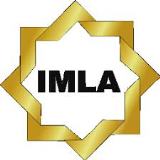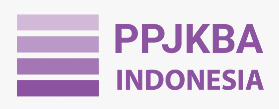PANDANGAN ULAMA TERHADAP PEMBEDAHAN PLASTIK
DOI:
https://doi.org/10.21274/ahkam.2022.10.1.203-226Keywords:
Plastic Surgery, Body-changing, Body- shaping Classical Scholars ViewAbstract
Plastic surgery is an effective method and aims to realize the needs of consumers, especially in the face of the modern era. Although it is seen that its users give a positive impact, but as a Muslim who must adhere to Islamic law in all activities, a Muslim who performs plastic surgery should know the meaning and law of plastic surgery. Therefore, based on the Qur’an and hadith, muslim scholars give insights in their writings on changing the shape that this time can also be adapted to plastic surgery. The problem statement in this research is: what is mean and the law of plastic surgery in the view of Muslim scholars. While the objective of this research is to know the meaning and description of the law of plastic surgery in the view of muslim scholars. The methodology in this study uses the library method. From the point of view of the problem studied, this research uses an integrative, philosophical, systematic, and universal approach in order to find wisdom or facts about the research. The nature of this research is analytical descriptive. The methods of analysis that researchers use in this research are descriptive, comparative and critical analysis. The results of this study found that not all muslim scholars agree on the meaning of changing shape as a physical change. The muslim scholars who mean changing shape as a change in the physical, in general allows changing shape to reshape and prohibit changing shape to beautify.
References
Amelyn, Alfred, Kapita Selekta Hukum Kedokteran, Jakarta: Grafika Tama jaya, 1991.
al-Asqalani, Ahmad bin Ali bin Hajar, Fath al-Bari bi Syarh Sahih al-Bukhari, Juz. X, Riyadh: Dar al-Taybah, 2011.
al-Bantani, Muhammad Nawawi bin Umar, Nihayah al-Zain fi Irsyad al-Mubtadiin, Indonesia: al-Haramain, 2005.
al-Dimsyiqi, Muhyi al-Din bin Syarf al-Nawawi, Al-Majmu’ ‘ala Syarah al-Muhazzab, Juz. I, Beirut: Dar al-Kutub, 2001.
al-Haitamy, Ahmad bin Hajar, Tuhfatul Muhtaj ala Syarah Minhaj wa Hawasyi, juz. 1, Beirut: Dar Ihya Turats al-’Araby, 1983M/1357H.
Hadi, Sutrisno, Metode Risearch, Jilid. I, Yogyakarta: Andi Offset, 2001.
Hanafiah, M. Jusuf dan Amri Amir, Etika Kedokteran dan Hukum Kesehatan, Ed. II, Jakarta: Penerbit Buku Kedokteran EGC, 1999.
Iskandar, Metodologi penulisan dan Sosial (Kuantitatif dan Kualitatif), Jakarta: Gaung Persada Press, 2009.
Muhammad bin Ismail, Sahih Bukhari, Juz. VII, no. 5891, Lubnan: Dar al-Ta’sil, 2012.
al-Naisaburi, Muslim bin Hajjaj, Sahih Muslim, no. 257, Cet. I, Beirut: Dar al-Kutub, 1991.
Nata, Abuddin, Metode Studi Islam, Jakarta: Raja Grafindo Persada, 1999.
al-Qari, Ali bin Sultan Muhammad, Murqat al-Mafatih Syarh Misykat al-Masabih no. 4420, kitab Libas, bab Tarajjul, juz. VIII, Beirut: Dar al-Kutub al-Alamiah, 2001.
al-Qasimi, Jamaluddin, Mahasin al-Ta’wil, juz V, Beirut: Dar al-Kutub, t.th.
al-Qurthubi, Muhammad, al-Jami’ li Ahkam al-Quran li al-Qurthubi, Juz III, Kairo: Maktabah al-Shafa, 2005.
al-Syafi’i, Alauddin Muhammad, Tafsir al-Khazin, Juz I, Beirut: Dar al-Fikr, 2011.
al-Syafi’i, Shihab al-Din al-Ramli al-Ansari, Fath al-Jawd bi Syarh Manzumah Ibnu al-Imad, Beirut: Dar al-Basyair al-Islamiah, 1983.
al-Syafi’i, Sulaiman al-Bujairimy, Hasyiyah Bujairimy ‘ala al-Khatib, juz 1.
al-Syalhub, Fuad Abdul Aziz dan Harits al-Muzaidi, Panduan Etika Muslim Sehari-Hari, Surabaya: Pustaka Elba, 2009.
Wikipedia, “Bedah”, dalam https://id.wikipedia.org/wiki/Bedah. Diakses 22 Mei
Yuwono, Lukito, “Tanggung Jawab Dokter Terhadap Tindakan Medis Pada Pasien Bedah Plastik Berdasar Pada Inform Concert”, Tesis, Program Pasca Sarjana Universitas Diponegoro, Semarang, 2004.
Zed, Mestika, Metode penulisan Kepustakaan, Jakarta: Yayasan Obor Indonesia, 2004.
al-Zuhaily, Wahbah, Al-Tafsirul al-Wajiz, Damaskus: Dar al-Fikr, 1996.
Zuhdi, Masjfuk, Masail Fiqhiyah: Kapita Selekta Islam, Jakarta: PT. Toko Gunung Agung, 1997.













